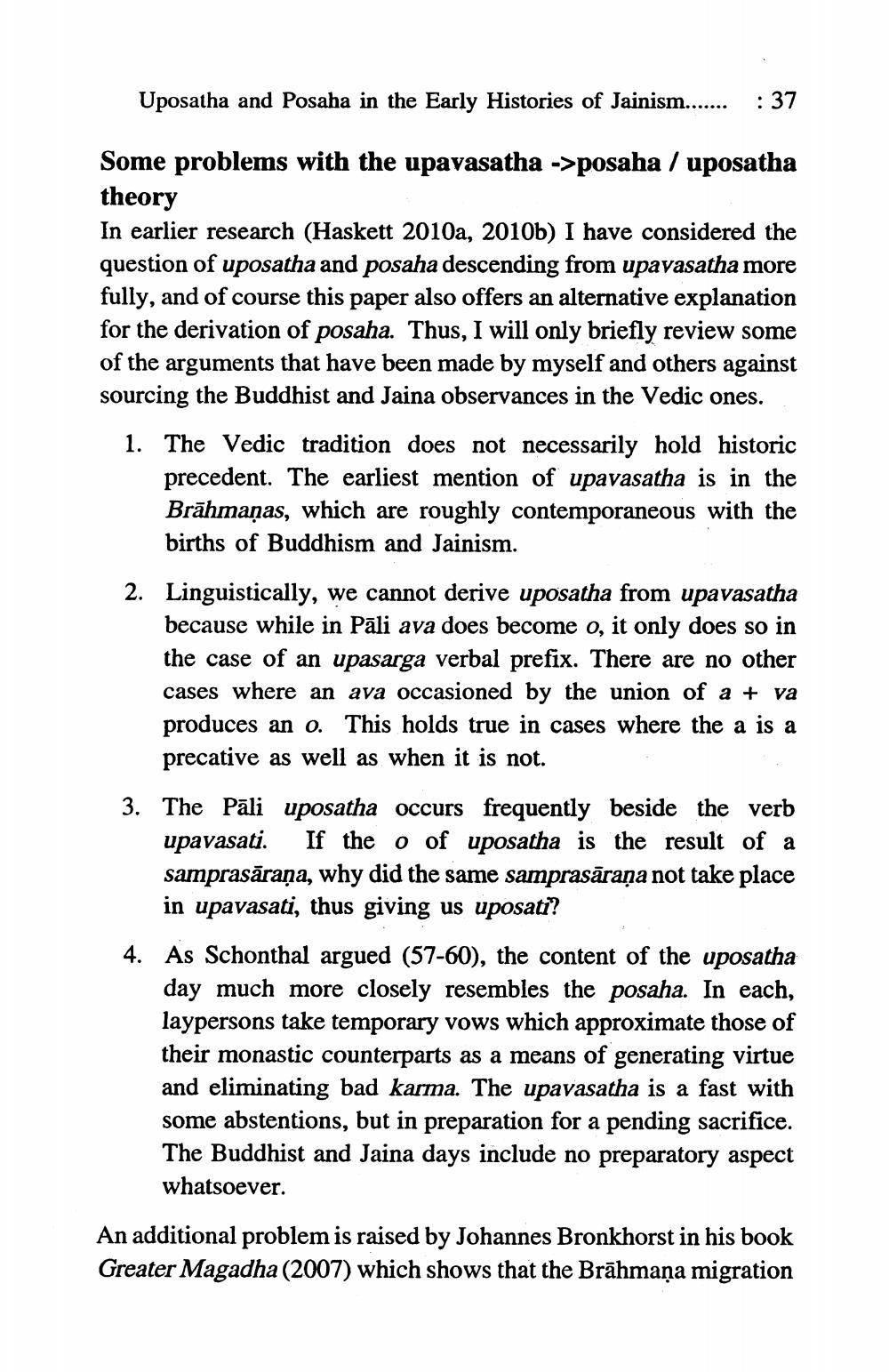________________
Uposatha and Posaha in the Early Histories of Jainism......
: 37
Some problems with the upavasatha ->posaha / uposatha theory In earlier research (Haskett 2010a, 2010b) I have considered the question of uposatha and posaha descending from upavasatha more fully, and of course this paper also offers an alternative explanation for the derivation of posaha. Thus, I will only briefly review some of the arguments that have been made by myself and others against sourcing the Buddhist and Jaina observances in the Vedic ones. 1. The Vedic tradition does not necessarily hold historic
precedent. The earliest mention of upavasatha is in the Brāhmaṇas, which are roughly contemporaneous with the
births of Buddhism and Jainism. 2. Linguistically, we cannot derive uposatha from upavasatha
because while in Pāli ava does become o, it only does so in the case of an upasarga verbal prefix. There are no other cases where an ava occasioned by the union of a + va produces an o. This holds true in cases where the a is a
precative as well as when it is not. 3. The Pāli uposatha occurs frequently beside the verb
upavasati. If the o of uposatha is the result of a samprasāraņa, why did the same samprasāraņa not take place
in upavasati, thus giving us uposati? 4. As Schonthal argued (57-60), the content of the uposatha
day much more closely resembles the posaha. In each, laypersons take temporary vows which approximate those of their monastic counterparts as a means of generating virtue and eliminating bad karma. The upavasatha is a fast with some abstentions, but in preparation for a pending sacrifice. The Buddhist and Jaina days include no preparatory aspect
whatsoever. An additional problem is raised by Johannes Bronkhorst in his book Greater Magadha (2007) which shows that the Brāhmaṇa migration




